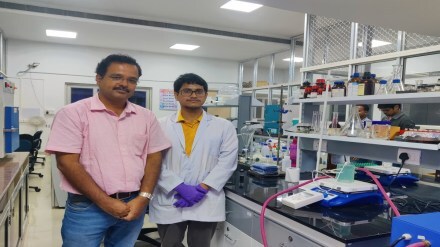Researchers from the Indian Institute of Technology Guwahati (IIT Guwahati) led by Tamal Banerjee, Department of Chemical Engineering, IIT Guwahati, have produced a heat transfer fluid based on nanofluids, which is capable of efficiently transferring heat generated using solar power to desalination systems, according to the press release.
This advancement claims to provide a practical solution for producing potable water from seawater, addressing the pressing issue of global water scarcity.
With the world facing a severe water shortage that outpaces population growth, the demand for desalination, a process that extracts freshwater from saltwater, has become critical. However, conventional desalination methods use heat generated by burning fossil fuels, leading to economic and environmental challenges. Concentrated Solar Power (CSP) that uses sunlight to generate heat can be a solution to this problem, the statement claimed.
The challenge of using CSP for desalination lies in transferring the generated heat from CSP systems to the desalination plants. Common heat transfer fluids, such as molten salts and synthetic oils, present drawbacks, including high melting points and low heat transfer efficiencies. Additionally, India’s dependence on imported heat transfer fluids escalates capital costs. To address these issues, the IIT Guwahati researchers explored the use of nanofluids, suspensions of nanoparticles in Deep Eutectic Solvent (DES), as informed by the press release.
“We developed a nanoparticle-dispersed deep eutectic solvent (NDDES) through precise mixing, demonstrating outstanding thermal conductivity and stability. This breakthrough has immense potential for sustainable energy applications, particularly in solar energy and desalination,” Nipu Kumar Das, said.
